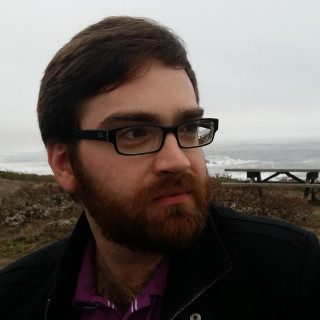Dr. Steven Adelman has practiced psychiatry and addiction medicine for nearly 40 years — training when the DSM III was in its heyday and fluoxetine was still a few years off — and is the principal of AdelMED.com, a concierge practice in Coaching and Consulting Psychiatry. During the course of his career, he has seen many evolutionary changes in medicine. As both a practicing physician and medical leader, Dr. Adelman’s experience has provided him with unique insights that may be of interest to newer clinicians as well as seasoned colleagues. Dr. Adelman talked to Doximity, focusing on his career and thoughts on the field of psychiatry: where it was, where it is, and where it can move forward.
Doximity: What drew you to the fields of psychiatry and addiction medicine?
Dr. Steven Adelman: I was always interested in the human side of the equation, what makes people tick. I’m equally comfortable with the humanities and the sciences. Within the house of medicine, psychiatry seemed to sit somewhere between the two, and that’s what drew me to it.
When I started training in the early ‘80s, there was something of a pitched battle taking place between the biological psychiatrists and the more traditional psychodynamic psychiatrists. These two camps were going at each other for a sort of dominance in the field. The biological group focused on the “broken brain” and how to fix it using pharmacotherapy, electroconvulsive therapy, and psychosurgery. The psychodynamic psychiatrists covered more emotional and psychological problems.
I decided early on that I was going to learn from both camps, and I wasn’t going to declare myself a member of either. I wanted to make sense of the totality of it.
I gravitated toward addiction psychiatry thanks to the perspective of Dr. George Engel, who theorized that everything should be viewed through a biopsychosocial lens. I think that is an intellectually honest and meritorious way to think about what ails humankind. We see that a lot with addiction — the socioeconomic substrate that may contribute to the emergence and persistence of substance use disorder. When people start using drugs, the drugs hijack the brain, and then the way out involves various psychological intervention and judicious use of appropriate medication. Success is possible, provided that the underlying socioeconomic determinants of illness are also addressed. I enjoy bringing all of that to bear to help other people.
Dox: Over the course of your nearly 40 years of practice, have you seen any major changes in your specialties?
SA: Forty years ago, most psychiatrists were doing talk therapy and complex theories of psychological causality were assumed to underlie most psychopathology. In 2021, most psychiatrists are practicing psychopharmacology and performing diagnostic assessments, which are descriptive, and do not presume any belief system around causality. We can agree on what we’re seeing, even if we can’t agree on what is causing the conditions we see.
I think the field is on a spectrum between the “broken brain” perspective and the “problems-in-living” approach. It leaned toward talk therapy when I started, and now it’s gone too far, perhaps, in the other direction. New psychiatrists aren’t as well trained in psychotherapies as they used to be. In particular, the more in-depth, long-term psychotherapies. That has, to a large extent, moved out of psychiatry and into other professions. I receive messages from therapists saying they are looking for a prescriber. That’s what’s in the minds of these other professionals: the psychiatrist is now this narrow being, someone who can write a prescription.
The world of medicine is enormously messy and complicated. The good side of this evolution toward the biological is that the more biologically savvy psychiatrists have embraced the treatment of people with major mental illnesses. The fact that psychiatrists in the community have a comfort level with severe psychiatric illness isn’t a bad thing in terms of improving the overall well-being of individuals suffering from mental illness, and helping society..
There are people who don’t need to see a clinician, they don’t have a “broken brain,” there is something going on that has to do with adjusting to elements in their life, and talk therapy with a nonphysician works just fine. On the other hand, there are people with severe mental illness. For them, talk therapy alone doesn’t get them very far.
What's challenging about what psychiatrists do is that someone comes along and says they say that they’re depressed. It can look like nonbiological depression, but [the patient] may benefit from medication, and can respond very nicely to medication. But if you can’t address the psychosocial fallout and components of it, you’re missing the boat.
In terms of the continuum of individuals who see people with psychological, emotional, and psychiatric distress, the well-trained psychiatrists who can put it all together are probably in the best position to figure out what is biological, what is psychological, or somewhere in between.
Dox: What do you imagine the next 10 years will bring to the field?
SA: Our health care system, right now, is a Rube Goldberg apparatus. We’re all living in our section of this fragile machine. To dismantle and rebuild it is probably a 10-year job at the minimum. People are change-averse, and there’s so much money and resources behind this system; health care is nearly 18% of our gross domestic product. It’s one of the largest industries in the country.
Let me be a little less gloomy and say, within psychiatry, I think there’s a growing recognition that helping the sickest people and collaborating with other health professions brings a lot of value to the table.
I think it’s important for the field to continue to lean into our identity as physicians and our identity as part of the body politic of the whole health care enterprise. If we’re not focusing on the humans and their behavior in the middle of it all, we’re failing in our profession.
Dox: Have you ever experienced doubt about your practice? If so, what kept you going?
SA: I worked in a multisite, multispecialty group practice for 20 years. I rose into a leadership position there as the chair of psychiatry. I like to joke that I realized I had become the CFO — and not the chief financial officer, but the chief flogging officer. I was flogging people to see patients, keep the schedules full, and bring in the money because we were in that fee-for-service world. That wasn’t easy, telling people to speed it up on the assembly line. That’s not how it should be when you’re dealing with patients. Around 2012, I became very interested in the health and well-being of other clinicians.
I took a job for eight years as the director of Massachusetts Physician Health Services, Inc., where doctors went to deal with addiction, mental illness, or cognitive decline. That was a radical reinvention for me because we went very deep on each case; it was the opposite of the rapid-fire managed care environment. Previously, the ;arge department I was responsible for saw about 40,000 unique patients a year. But in the physician health program, our focus was on about 250-300 clinicians a year.
That was the moment of truth. I reinvented myself instead of staying put or going up the corporate ladder. One of the many things I learned in that job is that we doctors don’t like to think of ourselves as broken or flawed. If you tell a doctor to see a therapist, they might run the other way. But if you say, “You could use some coaching to optimize your performance,” they’re much more likely to take the ball and run with it. So I learned a lot about coaching physicians and then reinvented myself as a coaching and consulting psychiatrist
Dox: For those starting out in the field, what advice would you give them?
SA: I would say to keep your mind open. Think about all the knowledge and all the educational experiences before you, like they’re a smorgasbord. Don’t gorge on the Swedish meatballs too early in the meal — taste broadly, and follow your heart and your gut a little bit in terms of what interests you. Everybody has something to teach you. Be in learning mode and growth mode throughout your career.
I also think many residents think they have to do a fellowship right out of training. I think if one of those subspecialties appeals to you, that’s a fine thing, but maybe you go out and practice a little bit and then think about what’s next. So, lean in, be in growth mode, and don’t worry too much if the path to the horizon isn’t clear — it's all about the journey.
What has your health care journey looked like? What changes have you witnessed in your time? Dox would love to hear from you!
Dr. Adelman is the principal of AdelMED LLC and is a section editor for UpToDate.
This interview was conducted by James Friebe, Op-Med Editorial Assistant.







